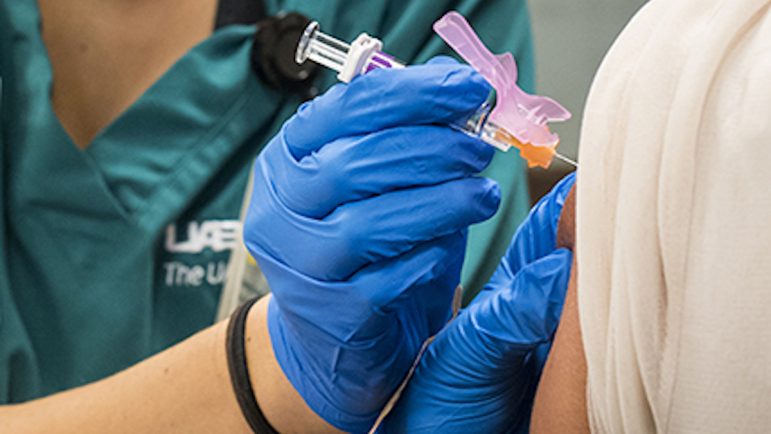When Tulane University medical student Brad Johnson heard from a friend that defrosted doses of the COVID-19 vaccine might get thrown in the trash, he was upset. He knew so many people were desperate to get vaccinated.
In early January, Johnson created a Facebook group called NOLA Vaccine Hunters, where New Orleans residents could find these leftover doses that were at risk of expiring at local pharmacies.
“My idea was there would be an audience of people who would then rush over to get their jab,” Johnson said.
That’s exactly what many people in these so-called “vaccine hunter” groups have done around the country. But Johnson also noticed that some have used the group for a different purpose: To figure out how they could travel to Mississippi, which has looser eligibility requirements than its neighboring states, for a shot.
“What I’ve been hearing is that people are booking appointments for their elderly parents who aren’t able to find appointments in Louisiana, or cancer survivors or teachers,” Johnson said.
It’s not just residents in Louisiana who are traveling. There’s also concern about regular “vaccine tourism” out of Alabama and throughout the South.
In fact, in a press conference this week, Mississippi State Health Officer Thomas Dobbs said Mississippians are also going to Louisiana to get vaccinated.
“I know that on the coast a lot of folks [work] across the border in Slidell and New Orleans and a great many of them have been vaccinated,” Dobbs said.
More than 6,700 individuals from other states have been able to get shots in Mississippi. The state has given over 270,000 first doses so far. Officials say there are no plans to require proof of residency for individuals seeking a vaccine.
“Certainly we want to preserve Mississippi’s vaccine, and we will try to intervene in a way that makes sense, but we can’t raise new barriers,” Dobbs said.
Officials say people who work in the state but live elsewhere are eligible for a vaccine but have asked that others stay home.
The cross-border travel is raising concerns about how people will be able to get their second dose. The state’s supply is linked to the number of first doses administered, so when people go to neighboring states, it complicates the process.
In Alabama, public health officials are asking people to return to the state where they got their first shot, to get the second dose.
“However, if persons went to another state and the state is declining to vaccinate the second dose, Alabama residents will be vaccinated in Alabama,” Kristin Berryman, of the Alabama Department of Public Health, said in an email. “This will require some alteration in scheduling as this does not allocate a second dose for Alabama.”
Mississippi health officials have long stressed that people who get their first shot will be able to get a second dose.
This story was produced by the Gulf States Newsroom, a collaboration between Mississippi Public Broadcasting, WBHM in Birmingham, Alabama, WWNO in New Orleans and NPR.

